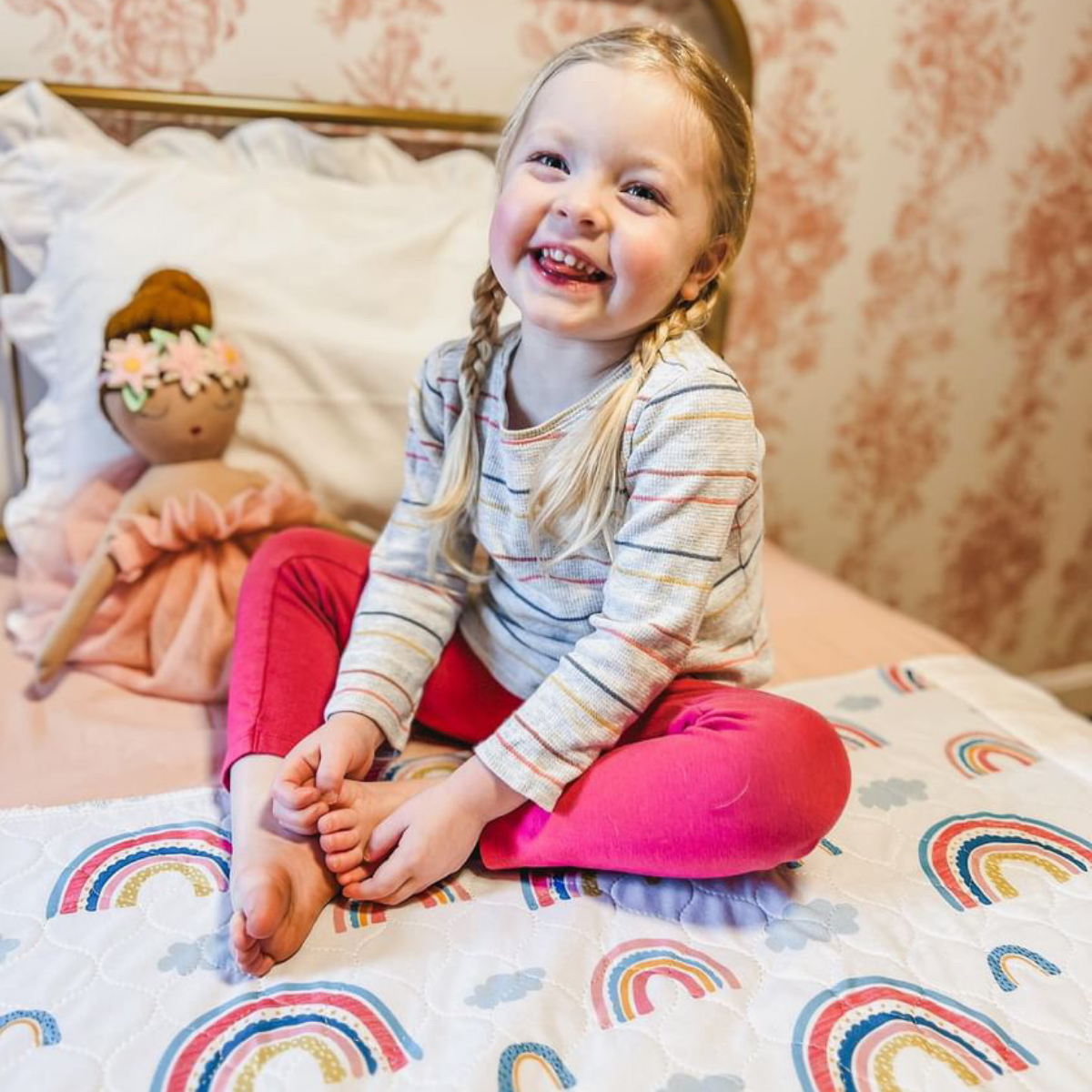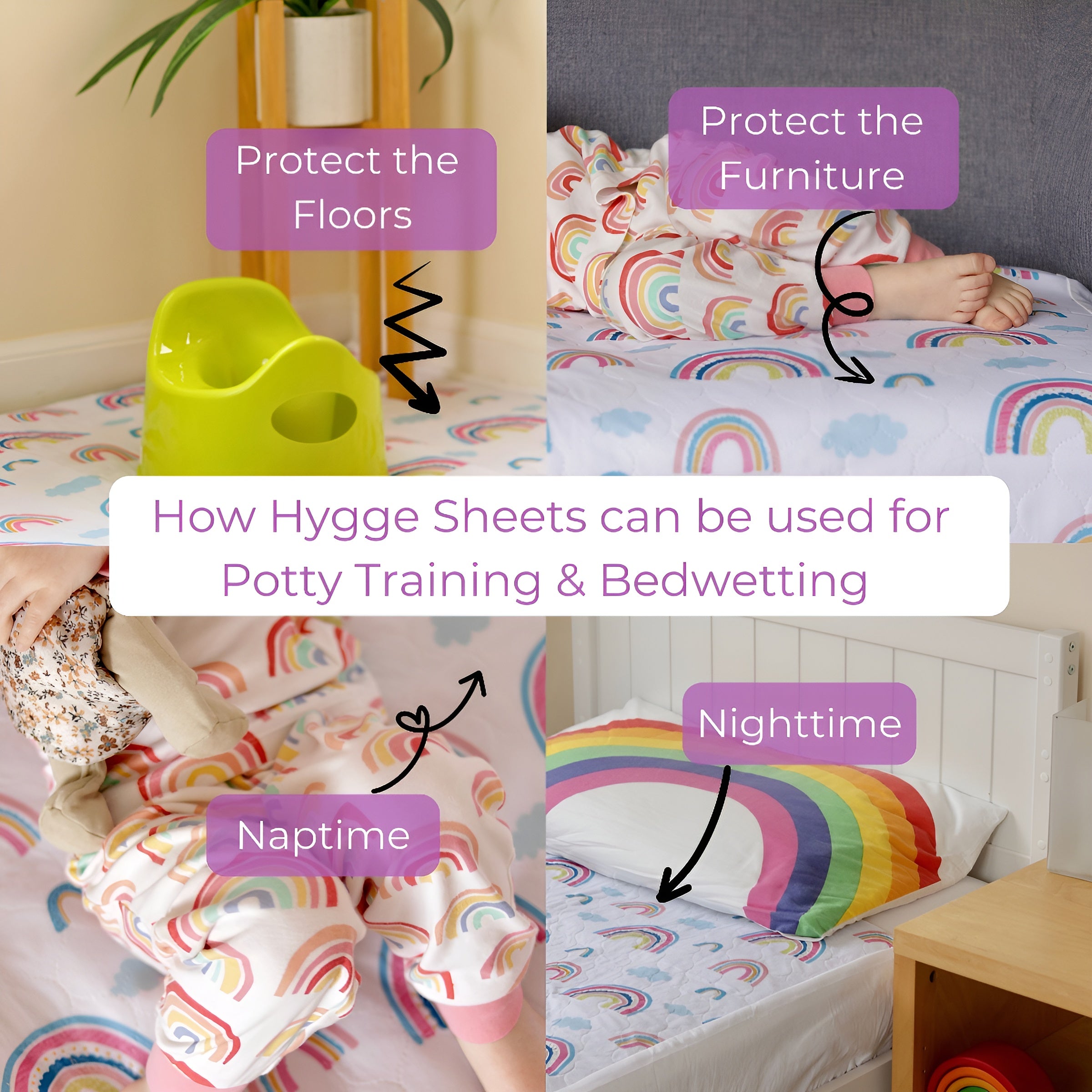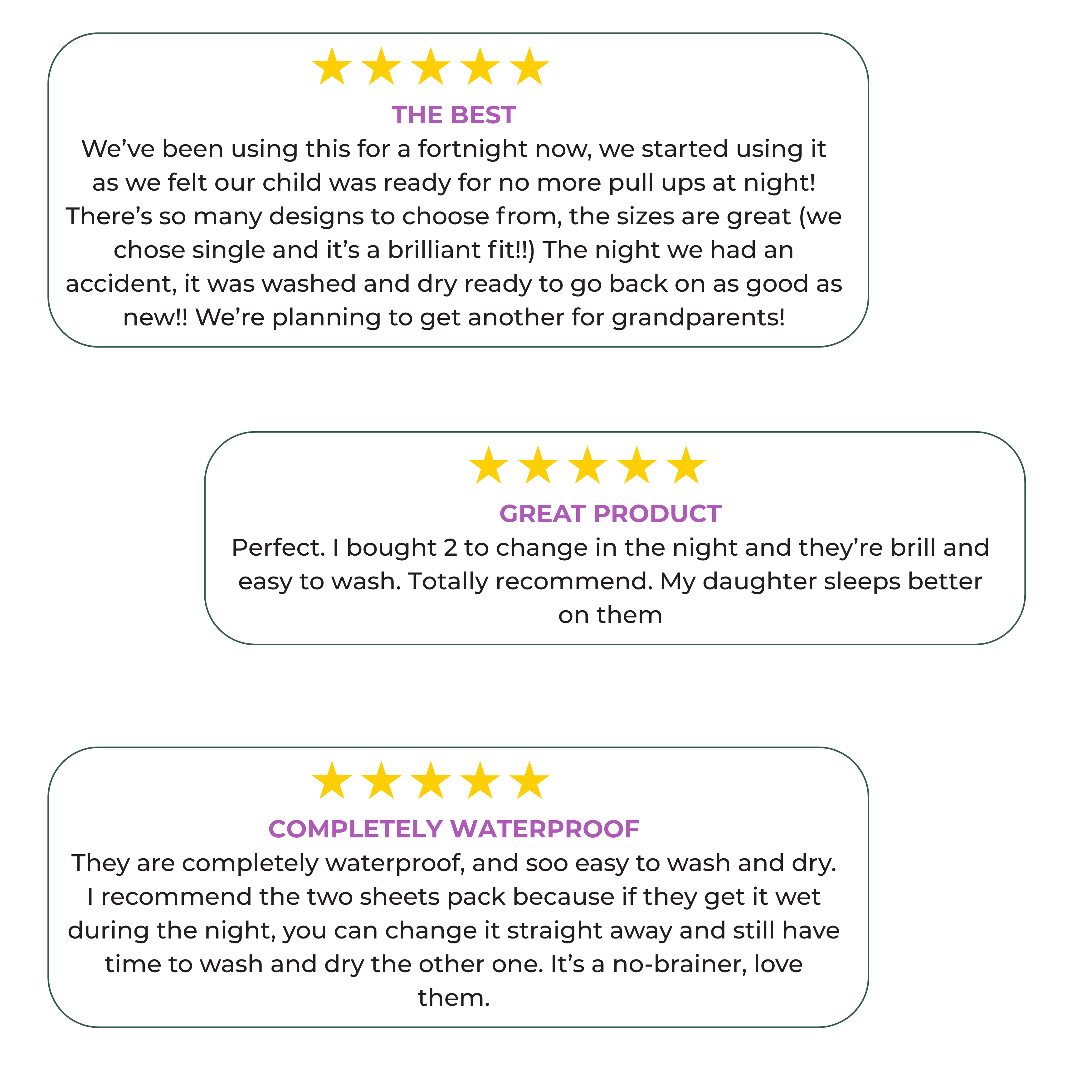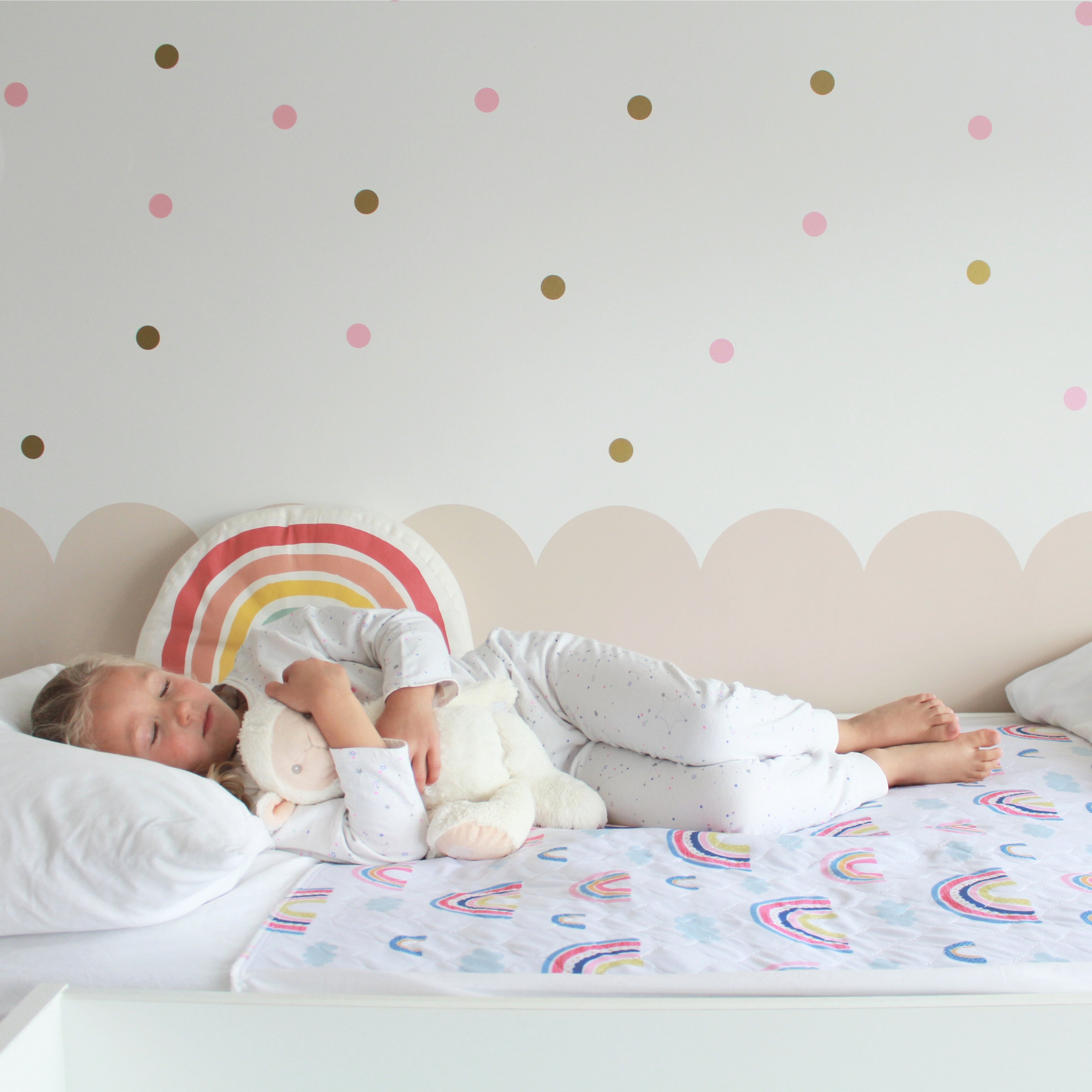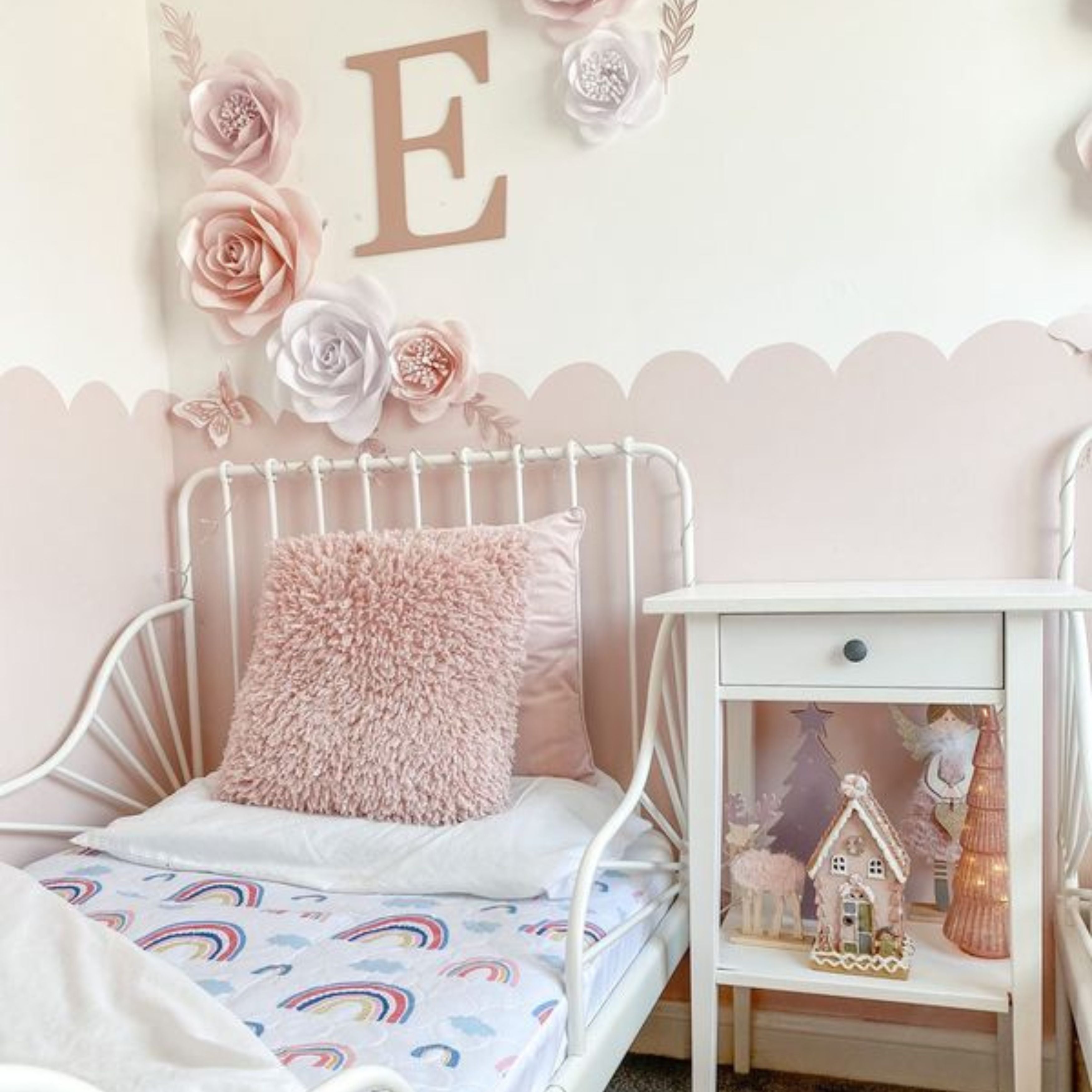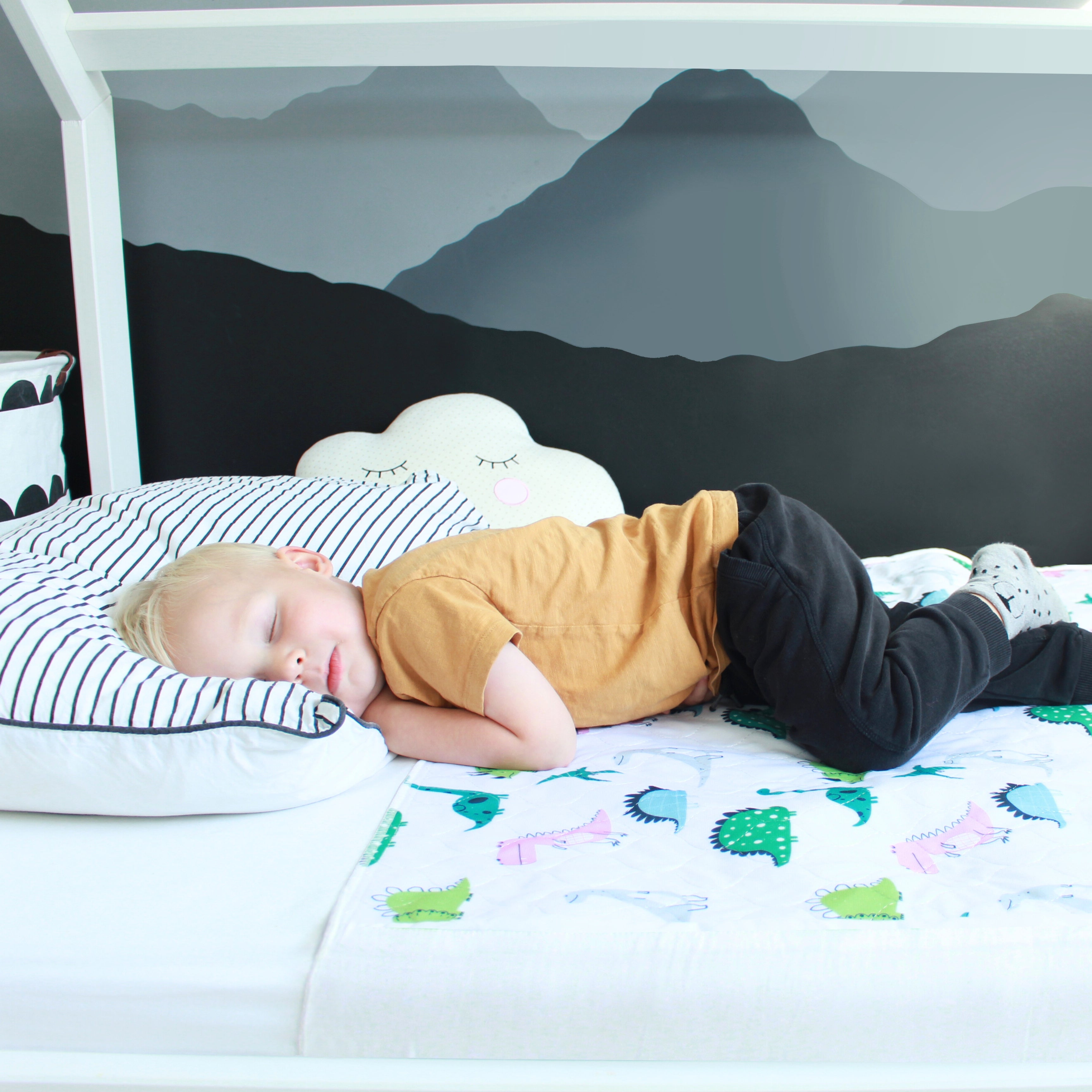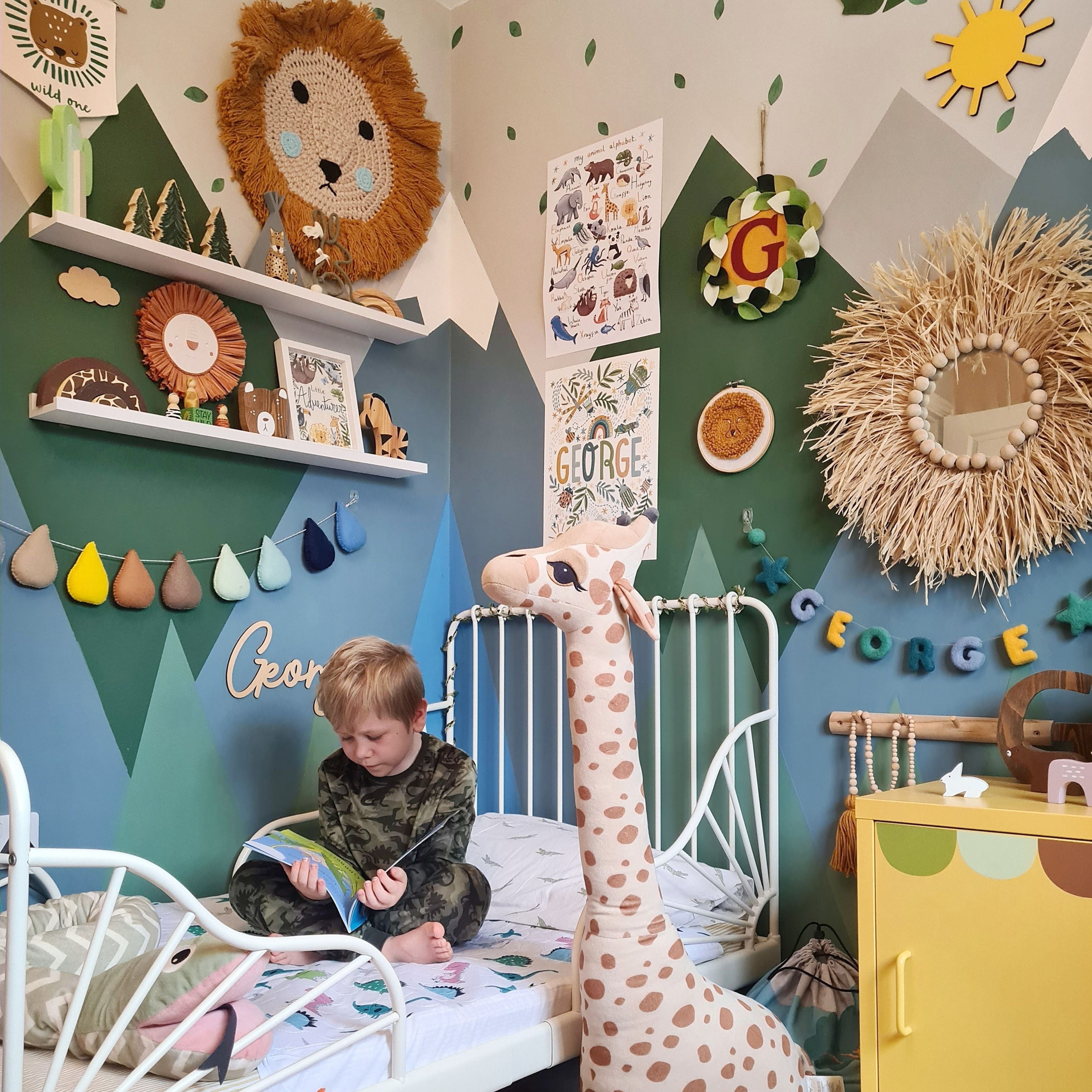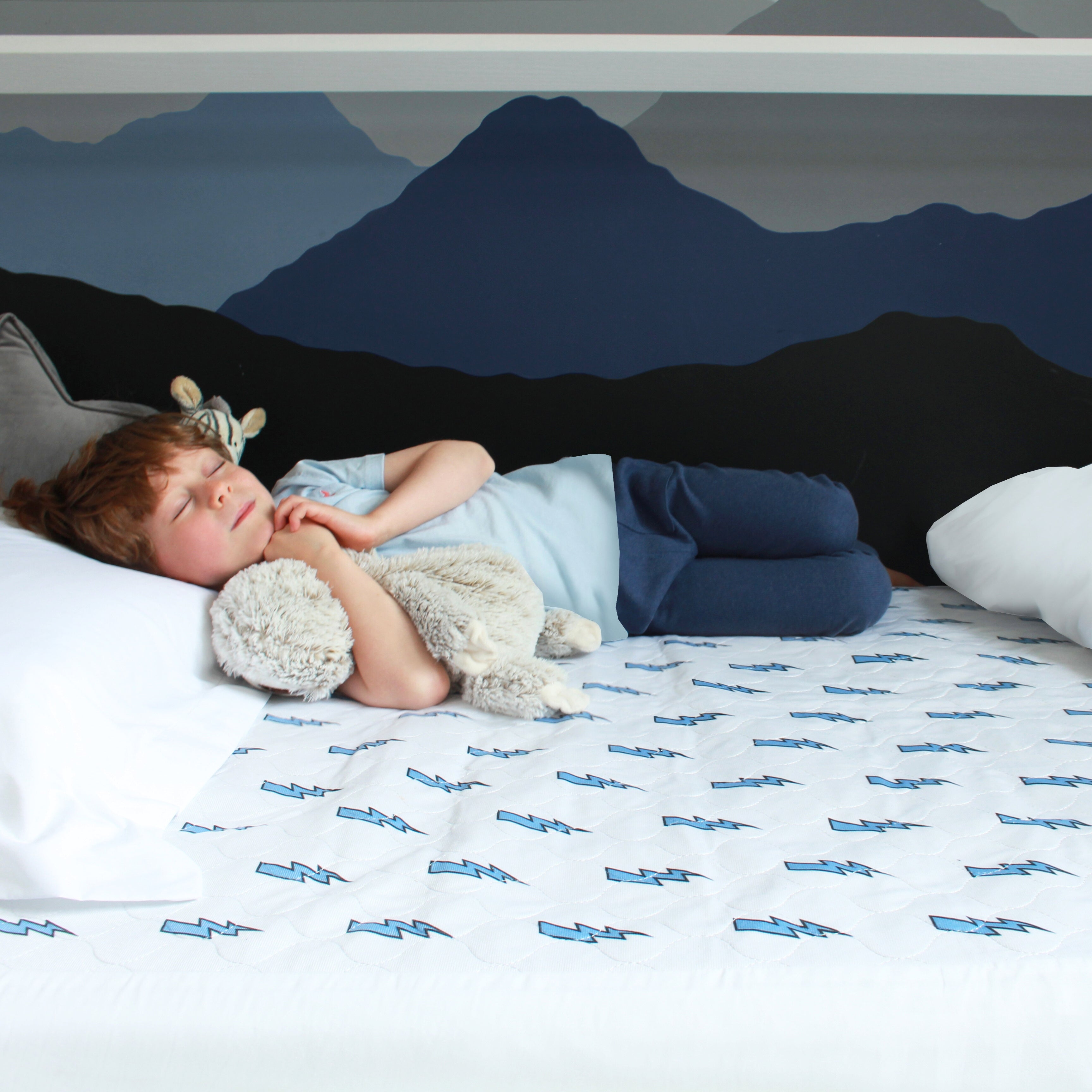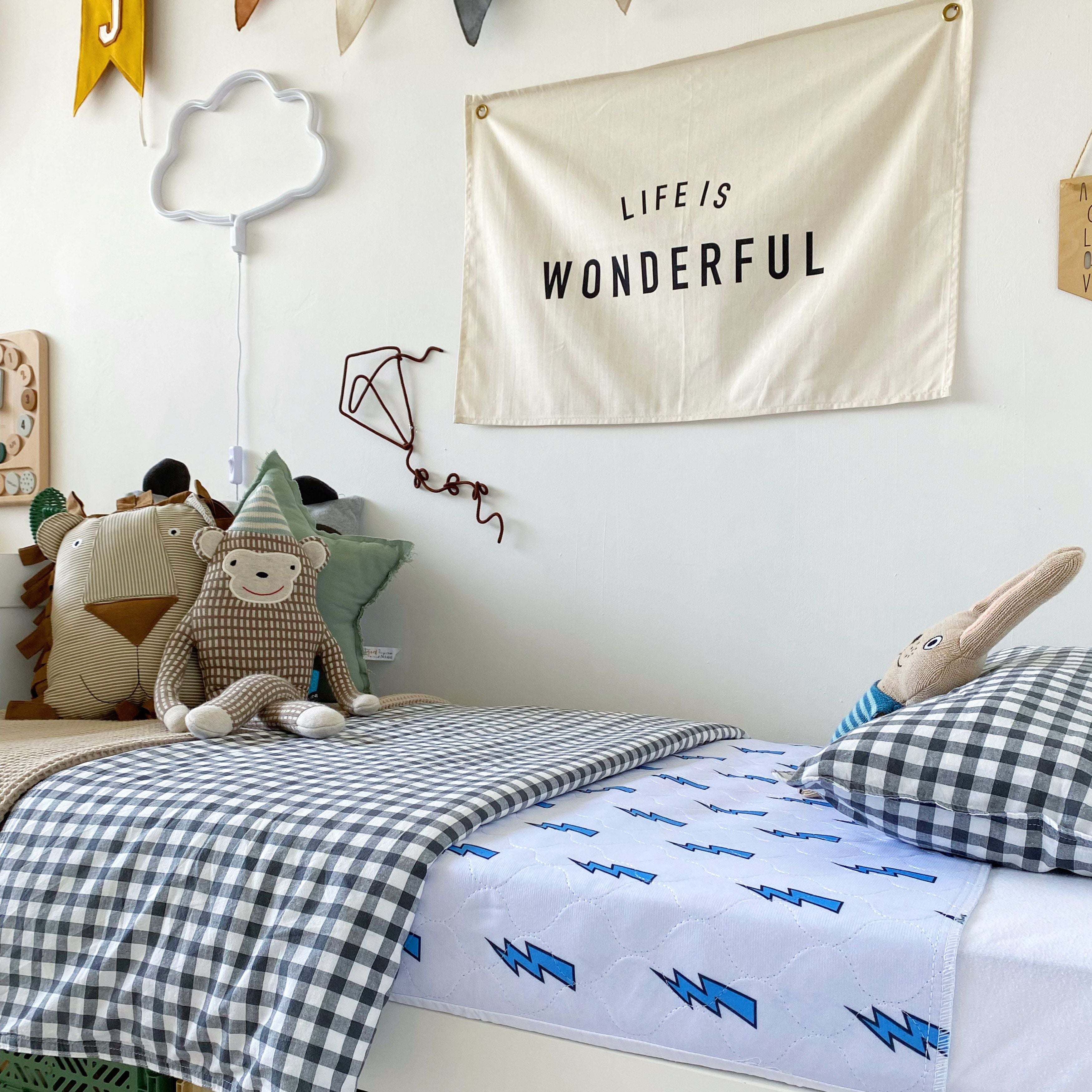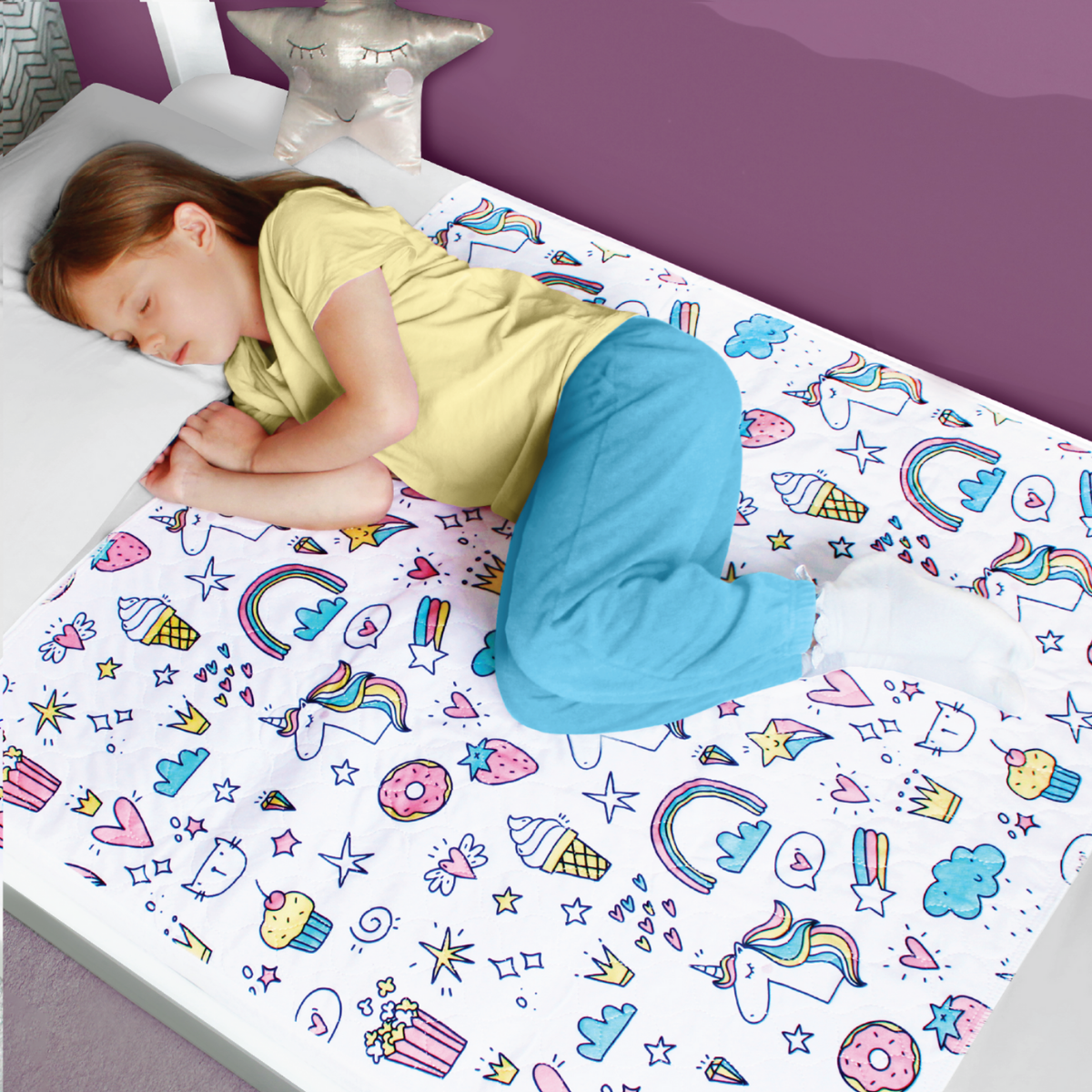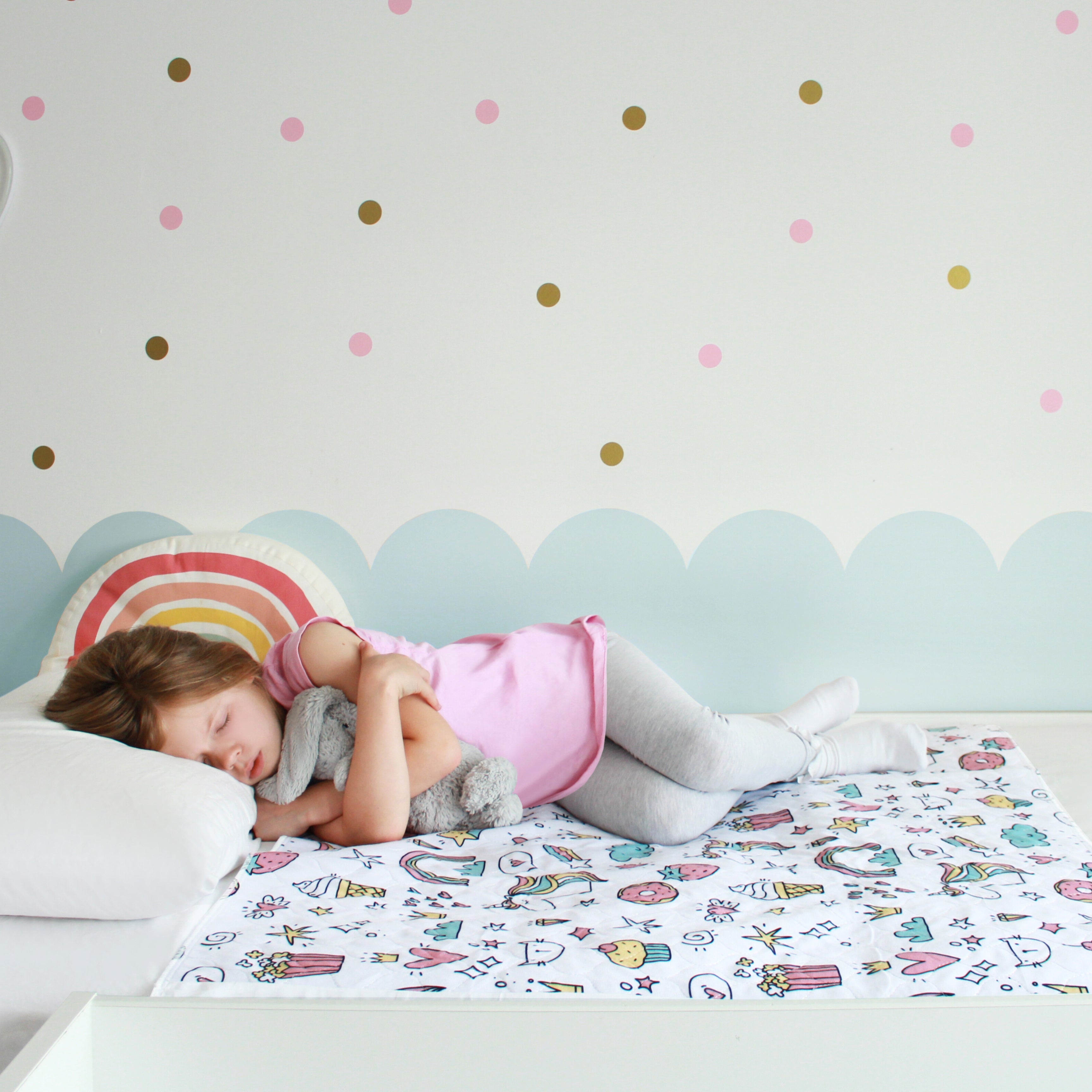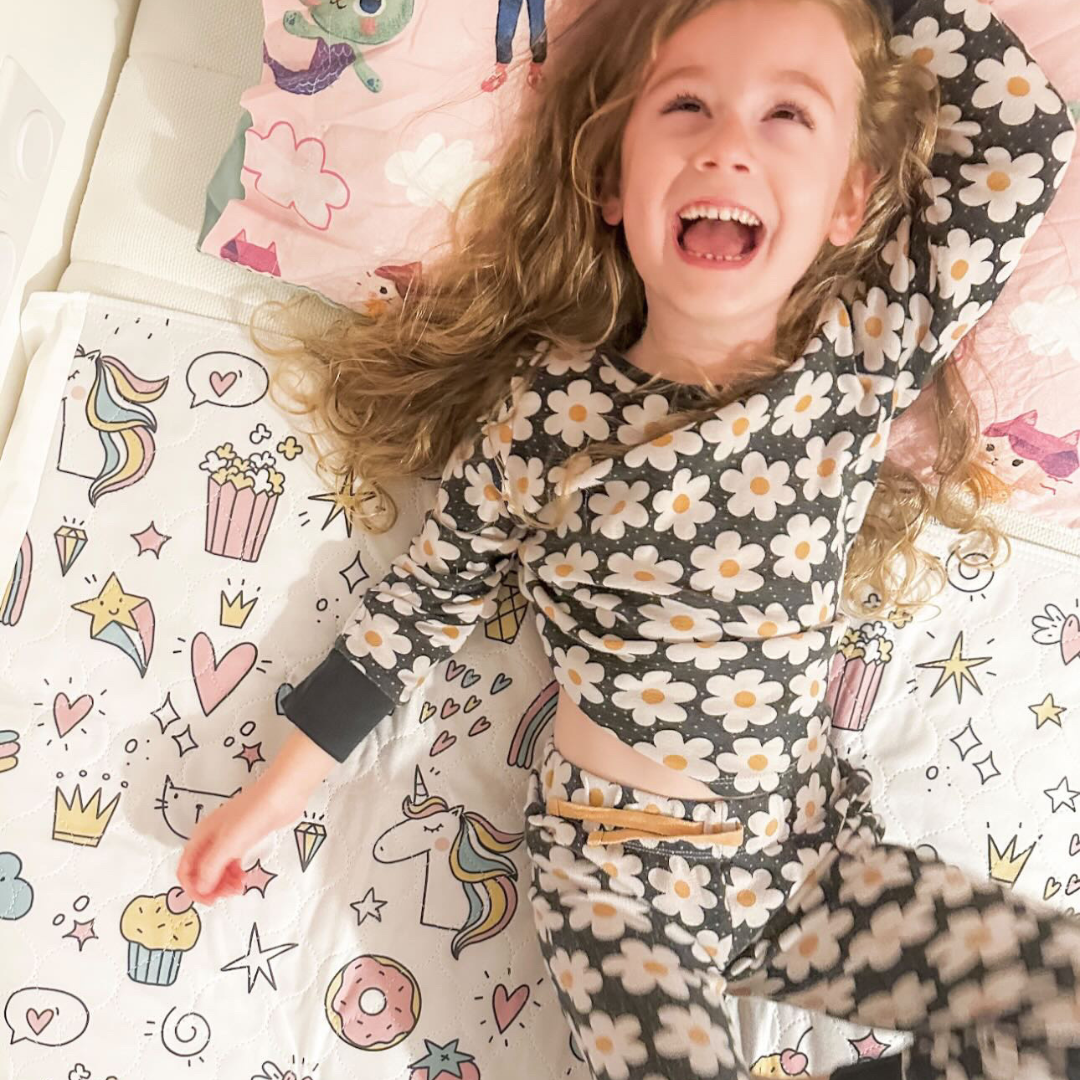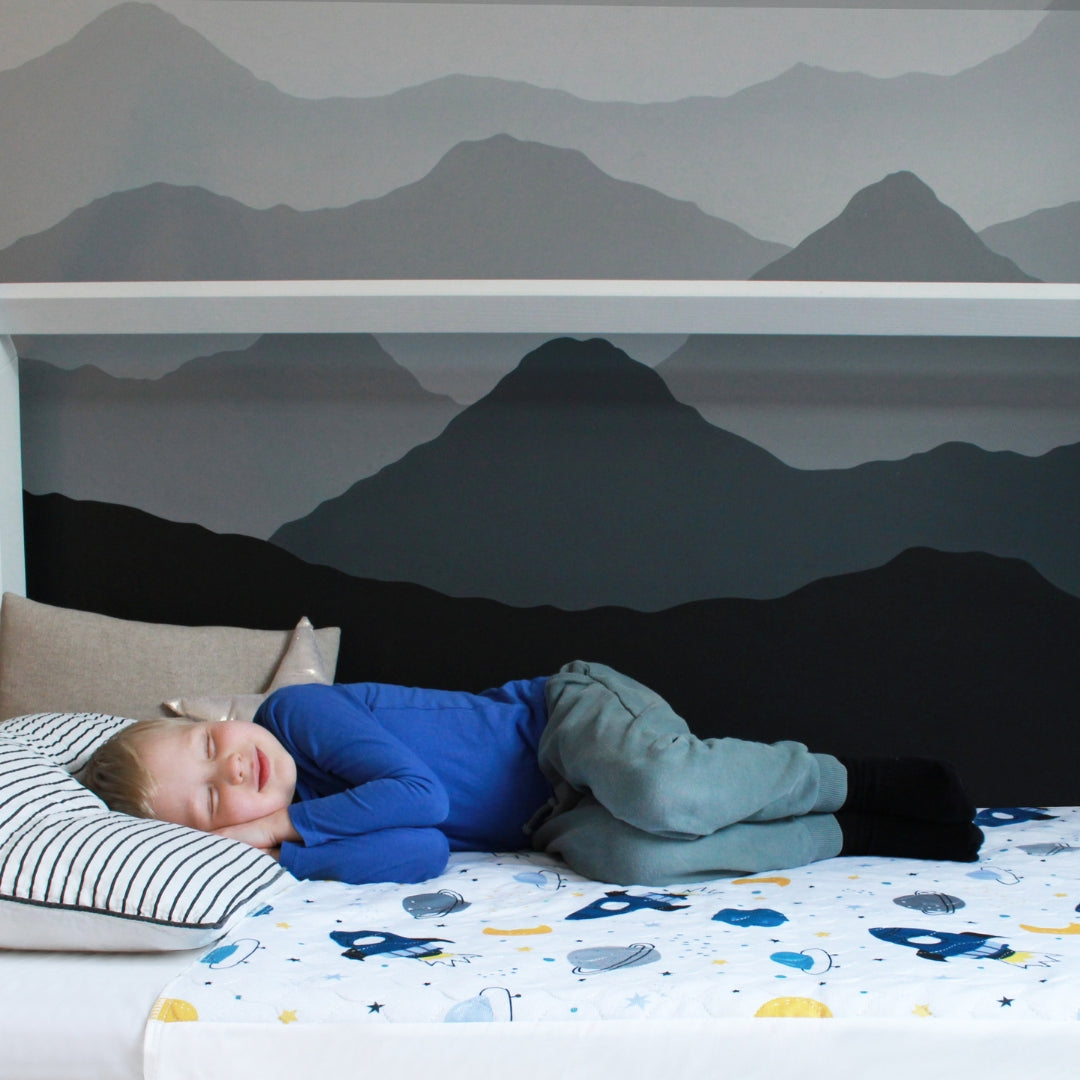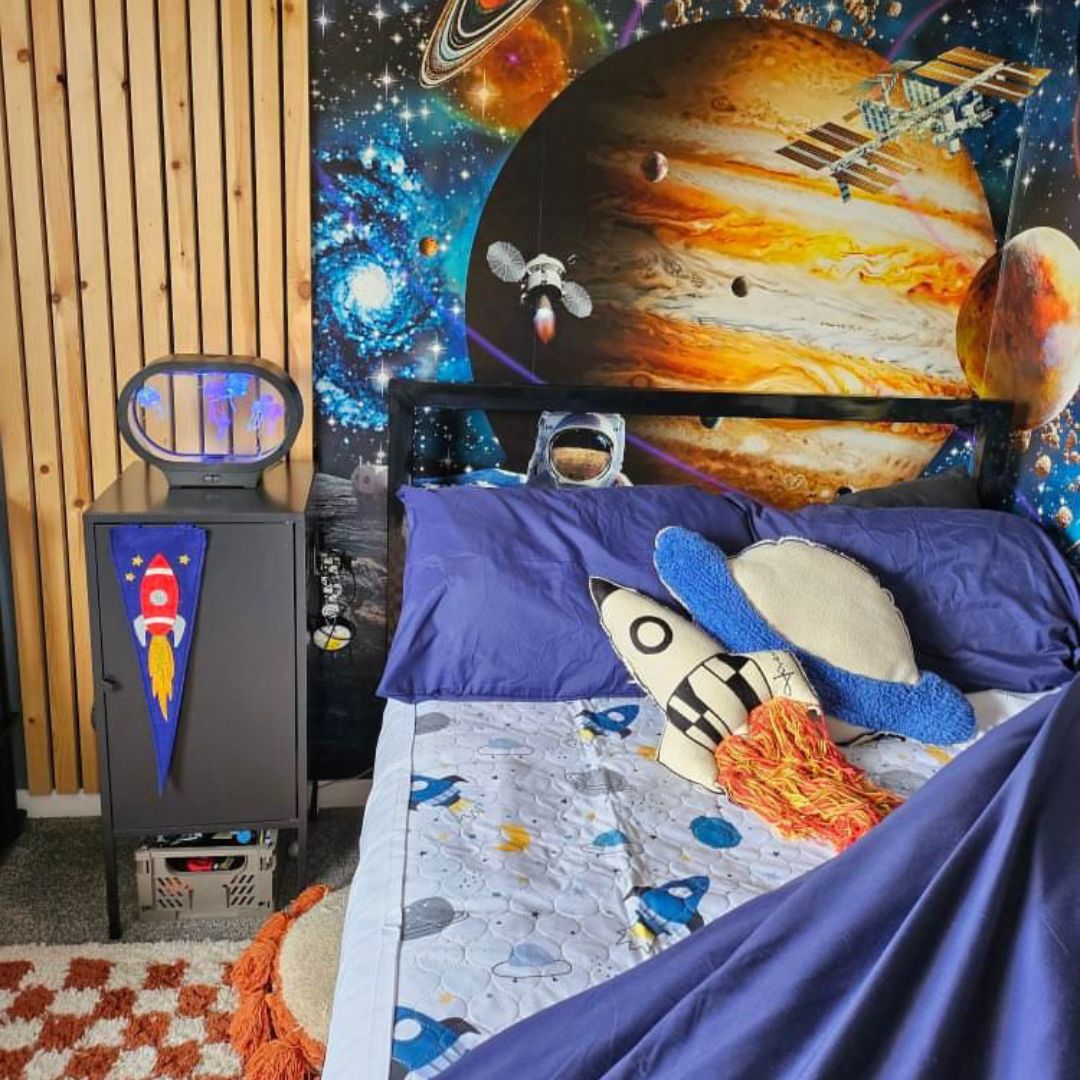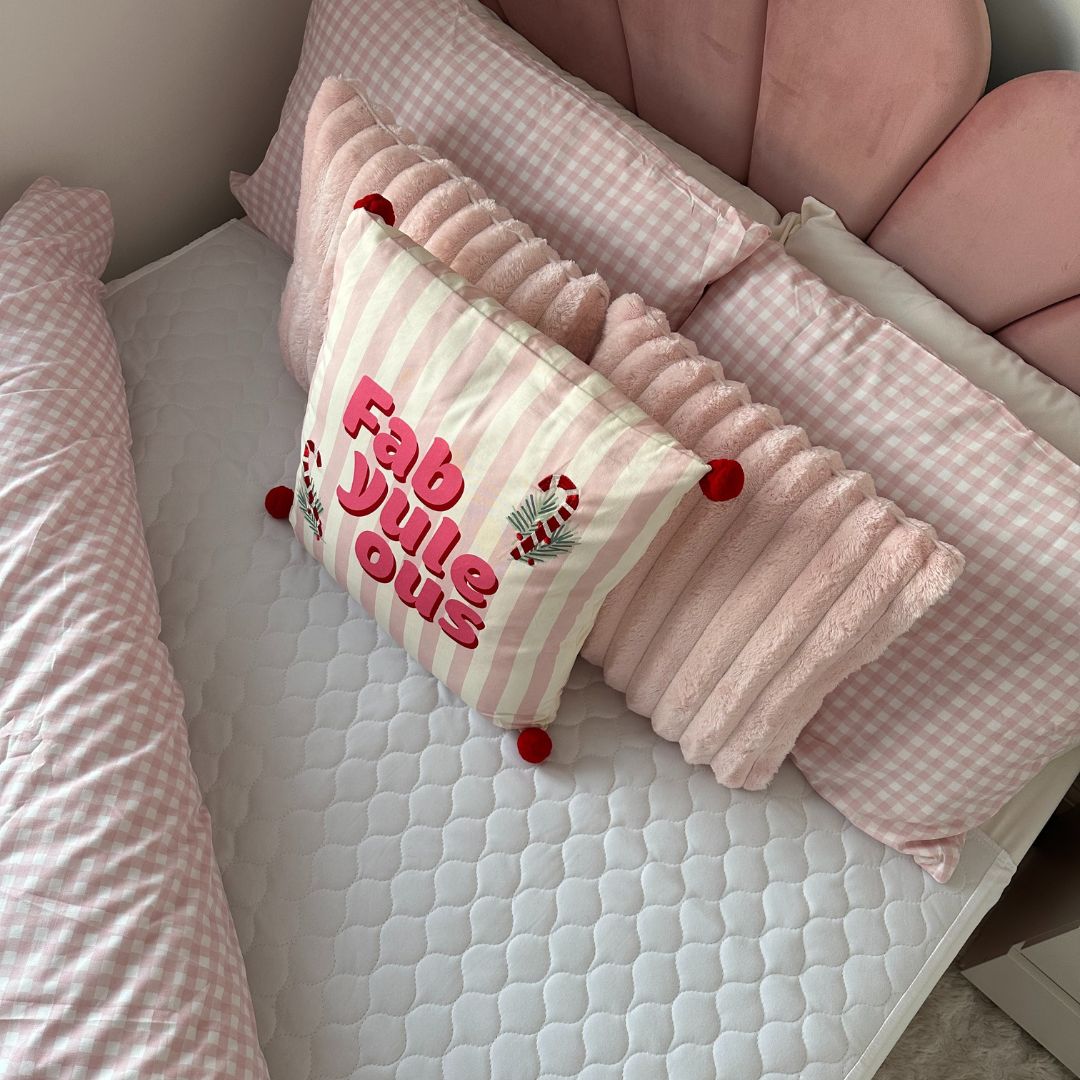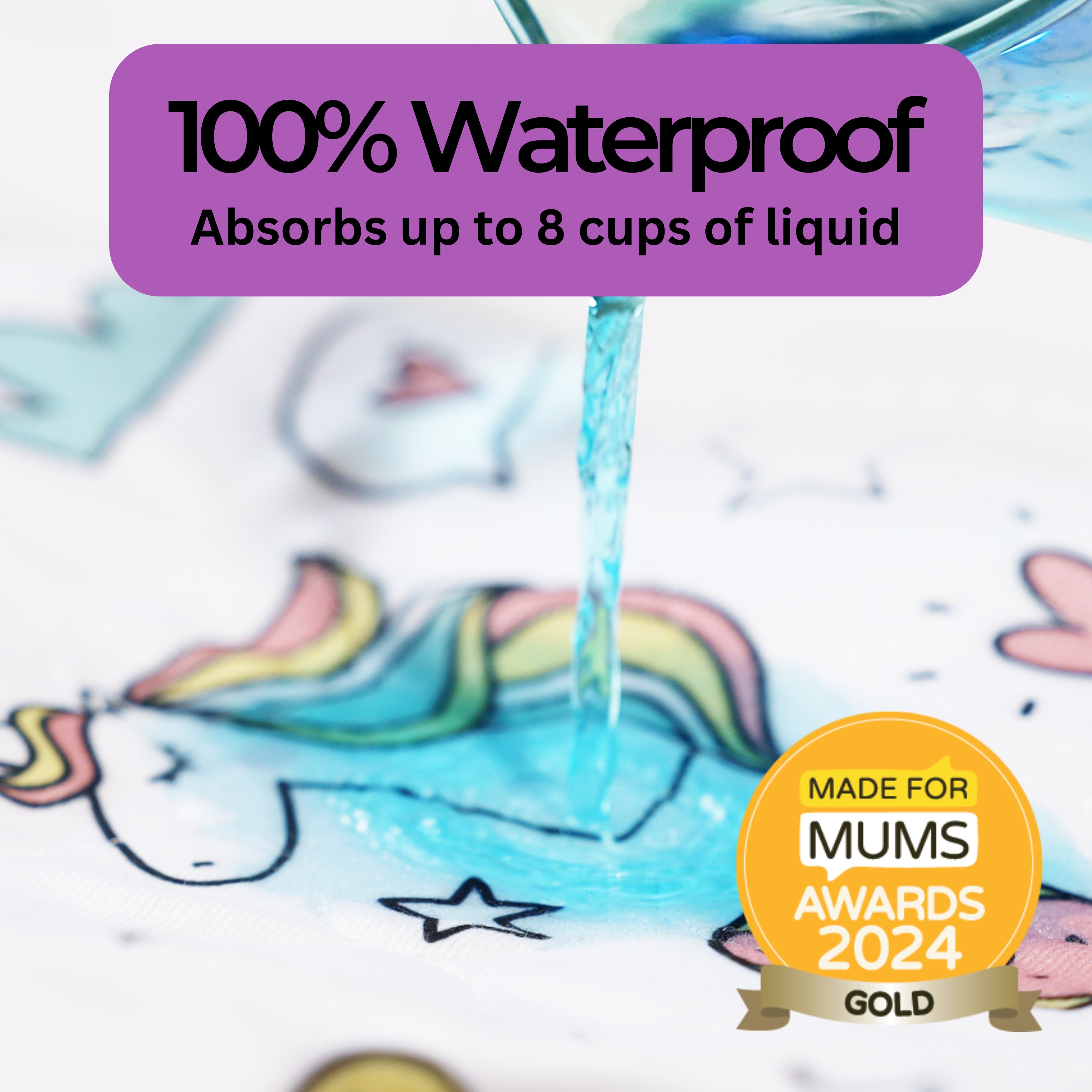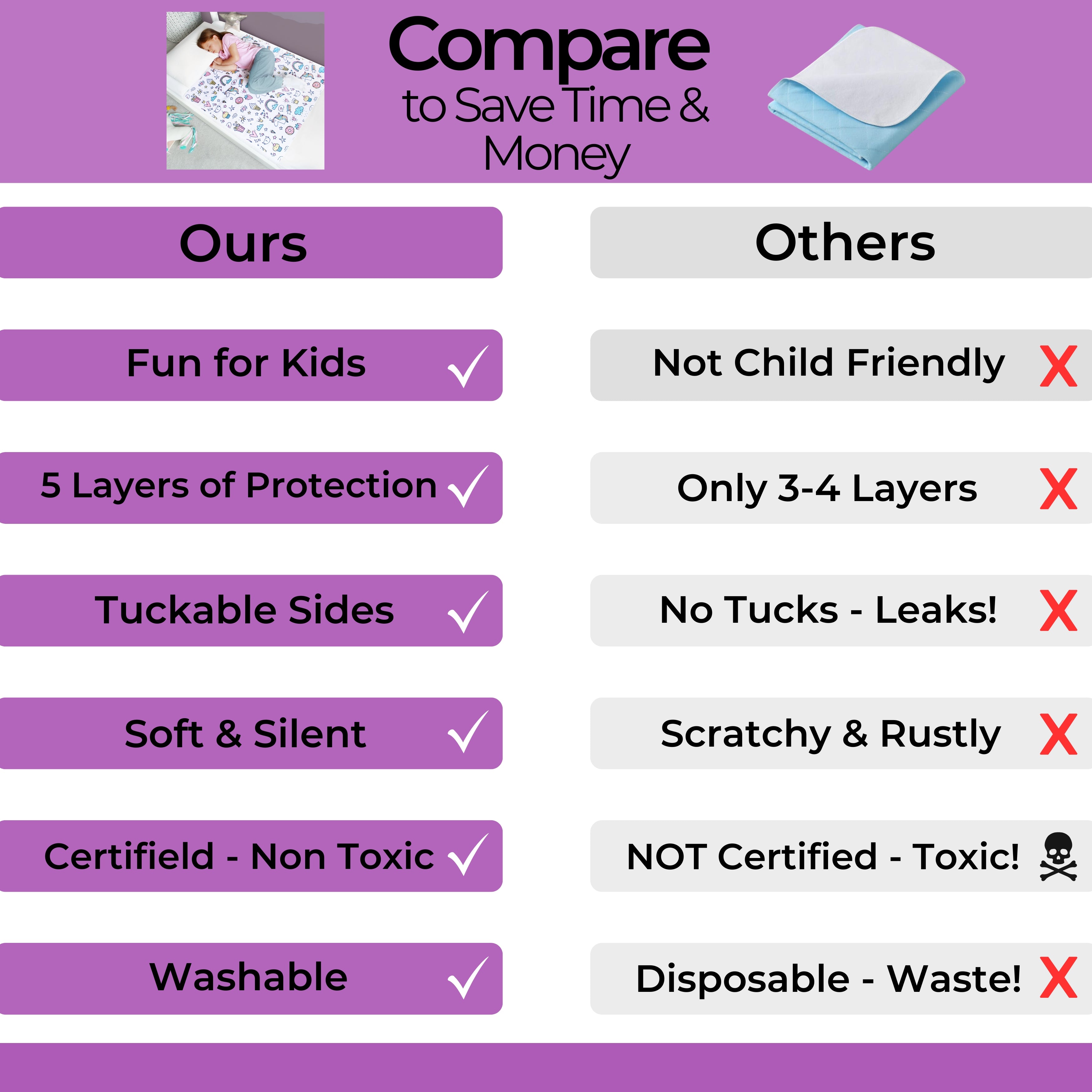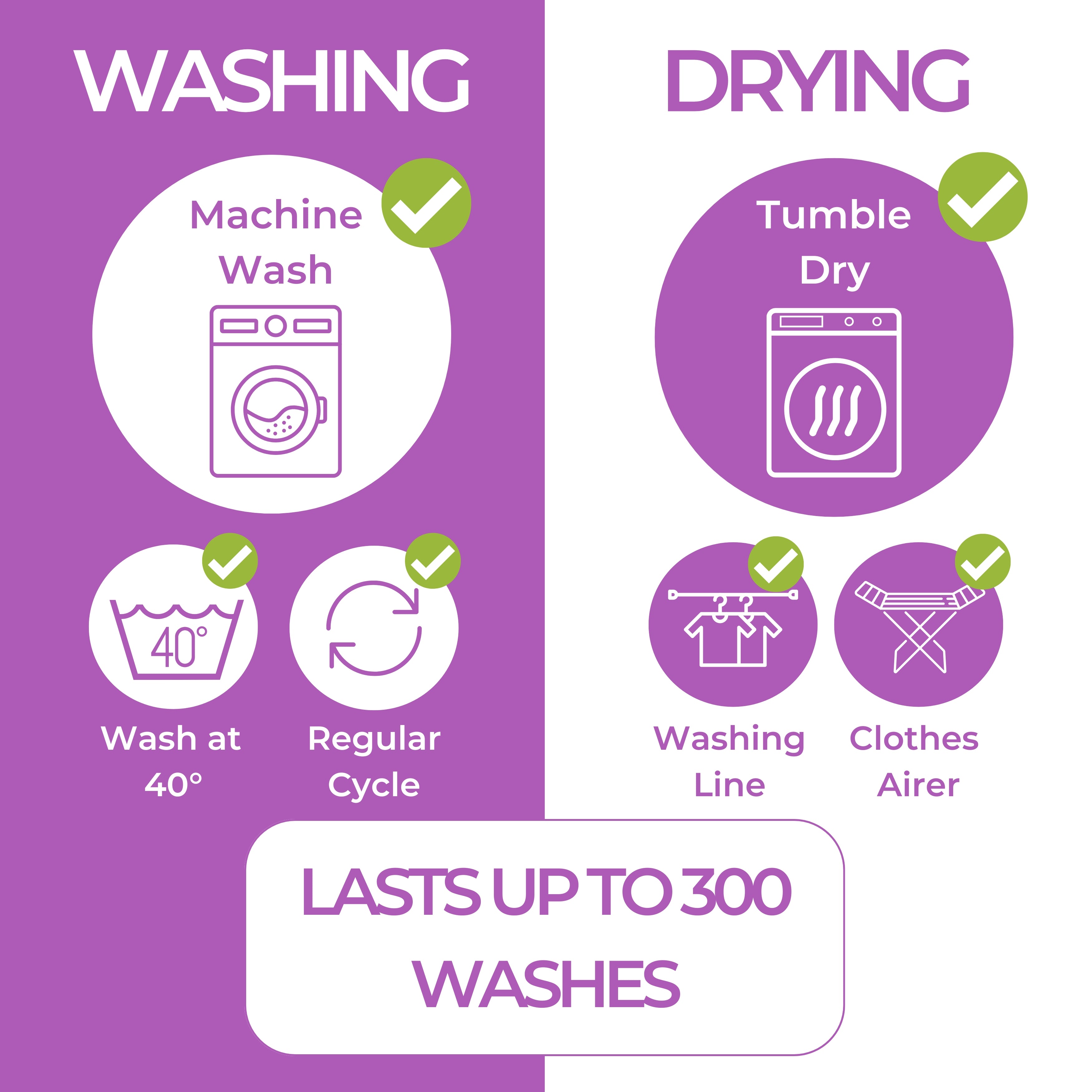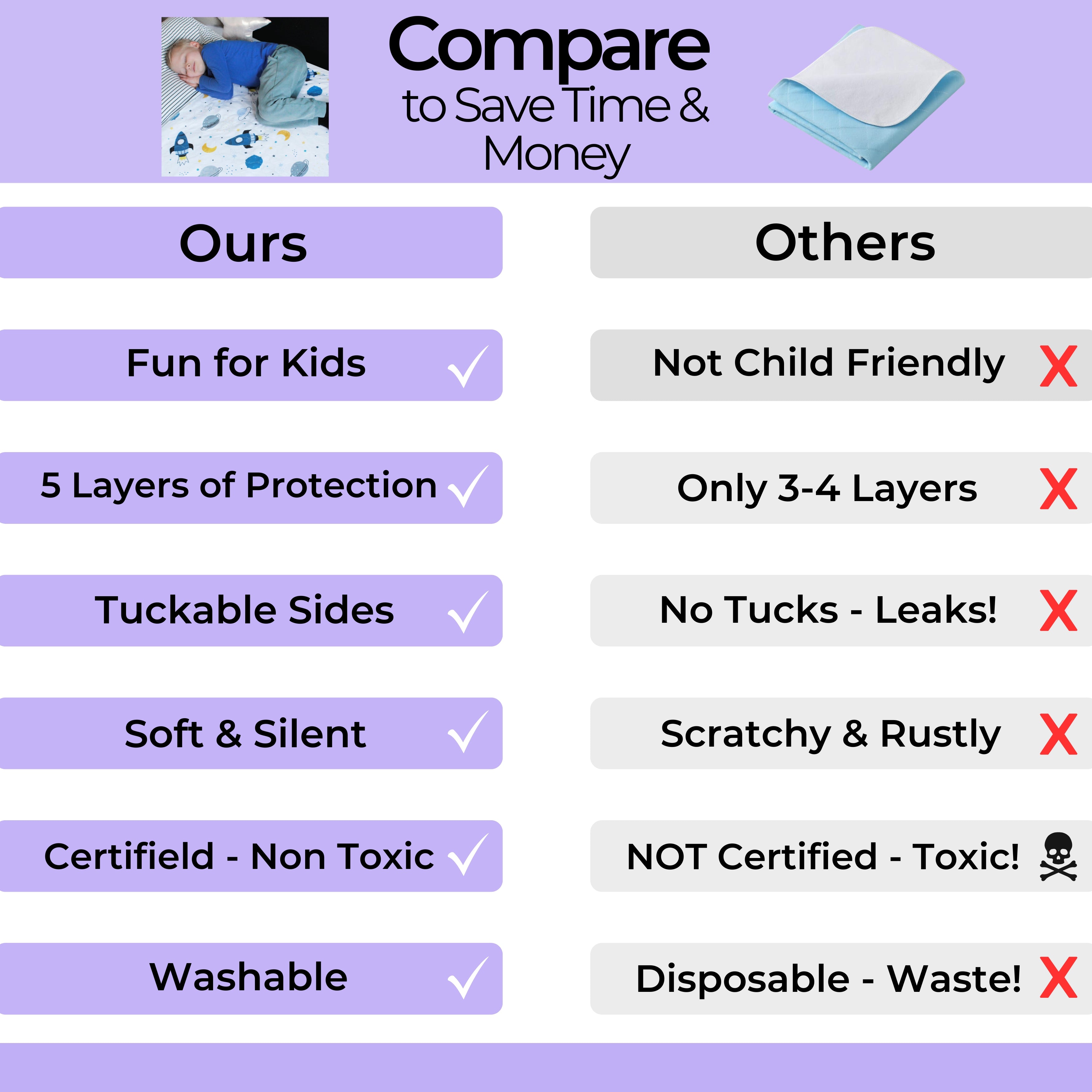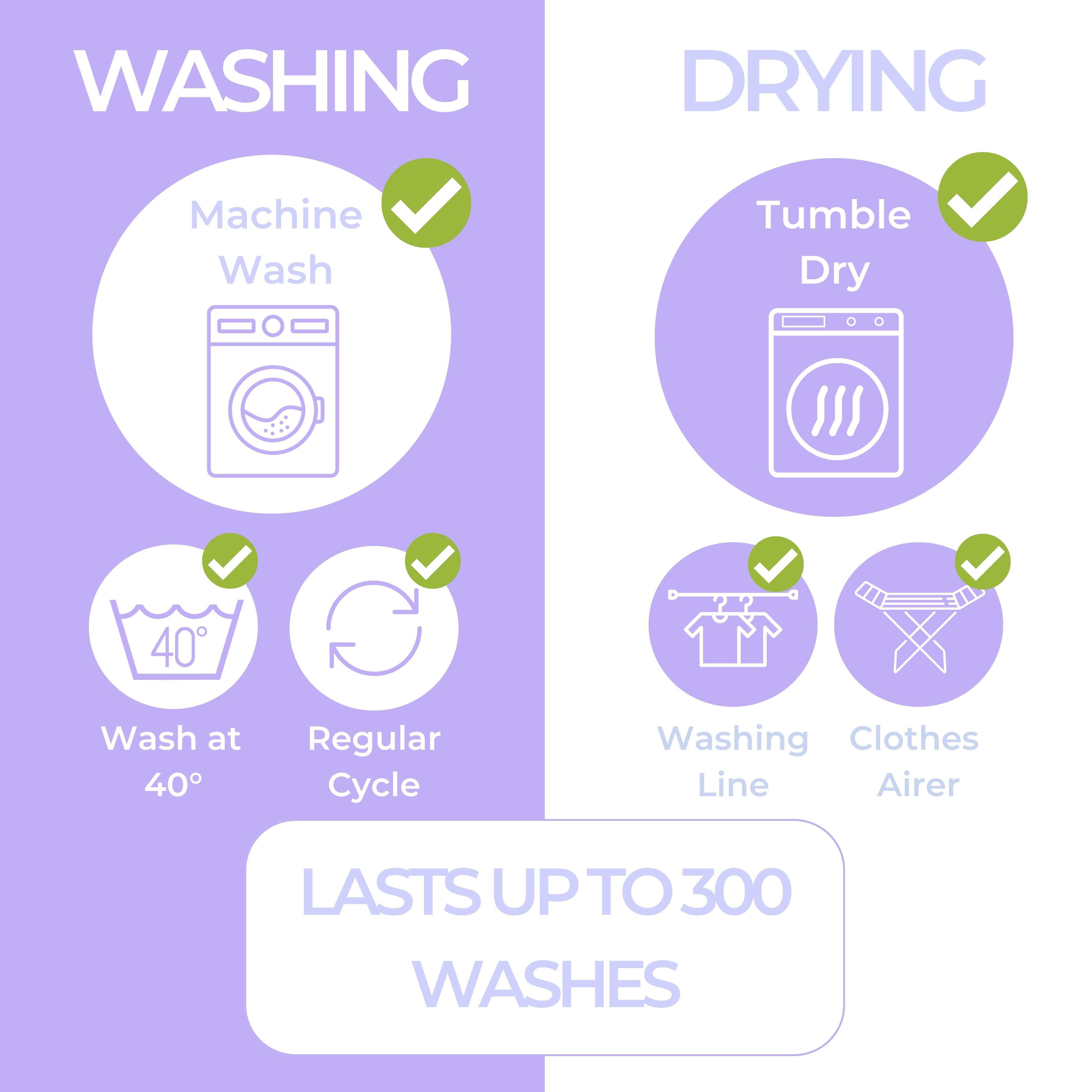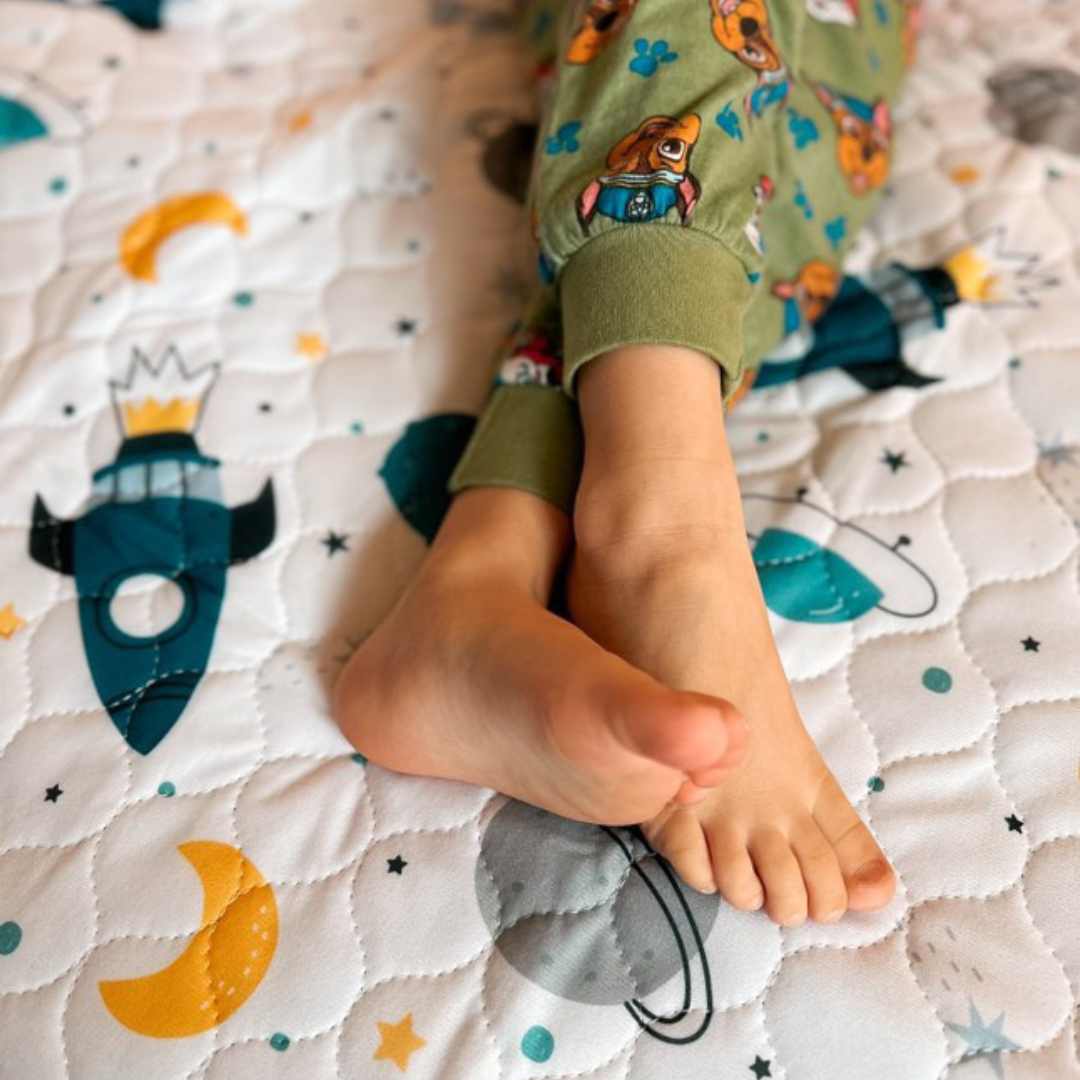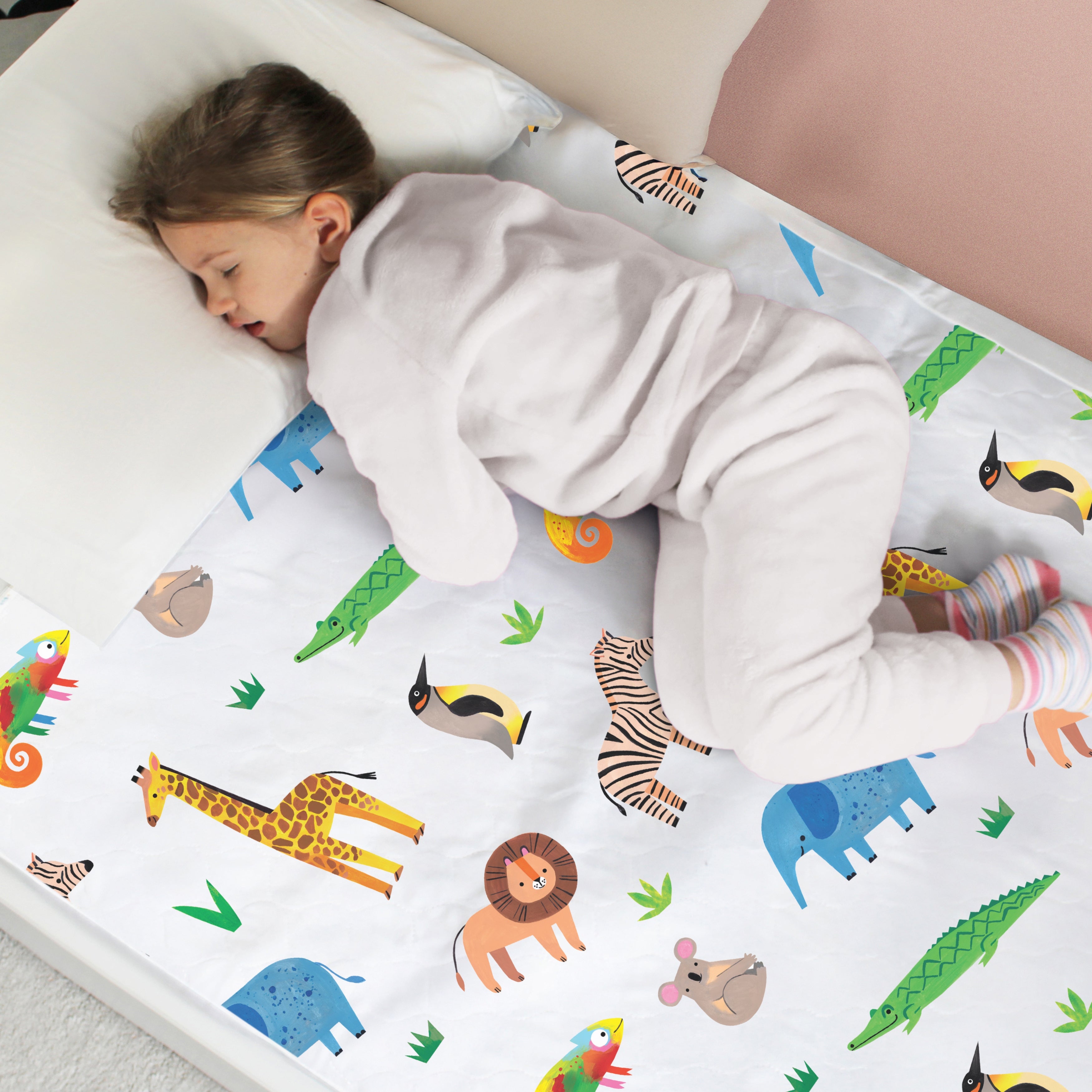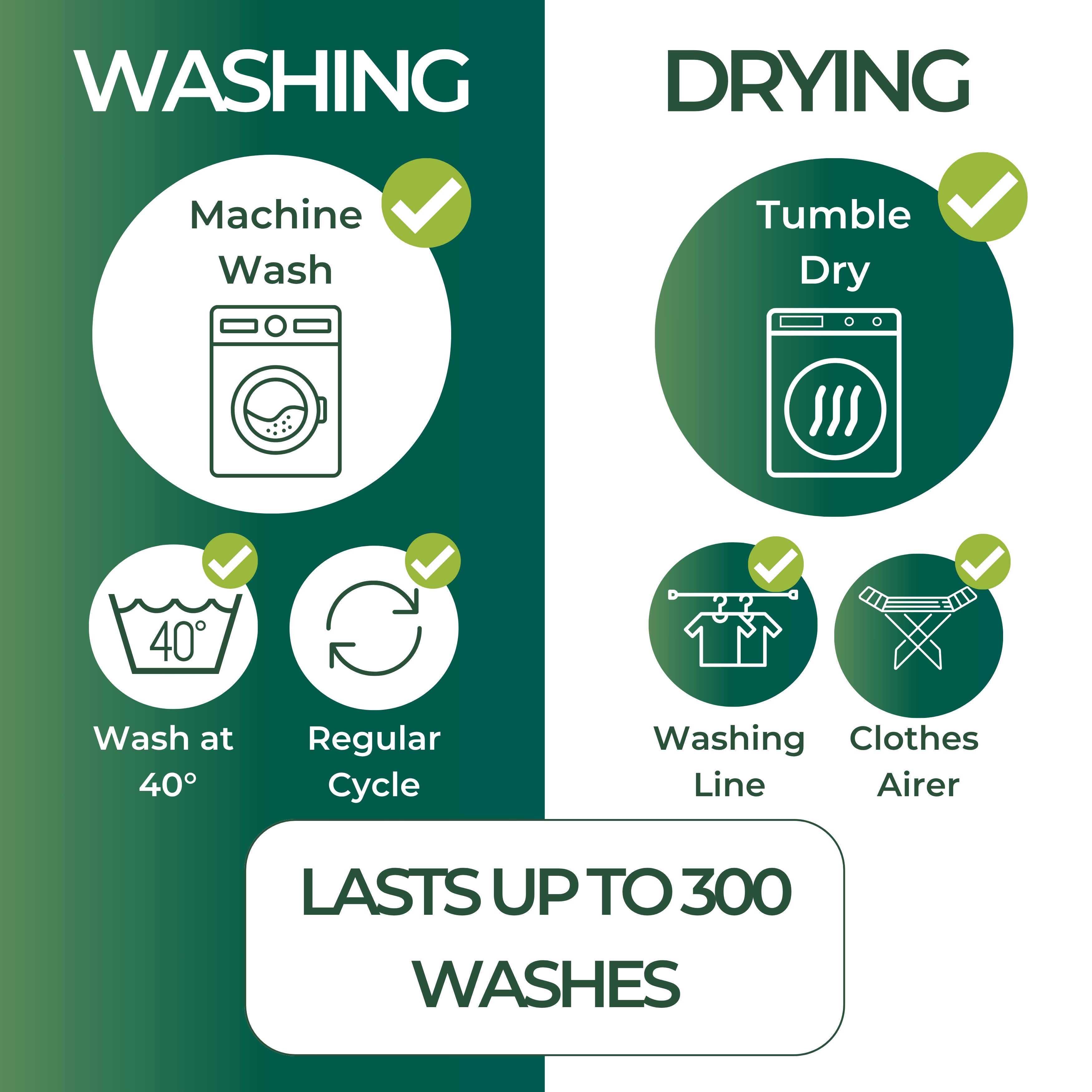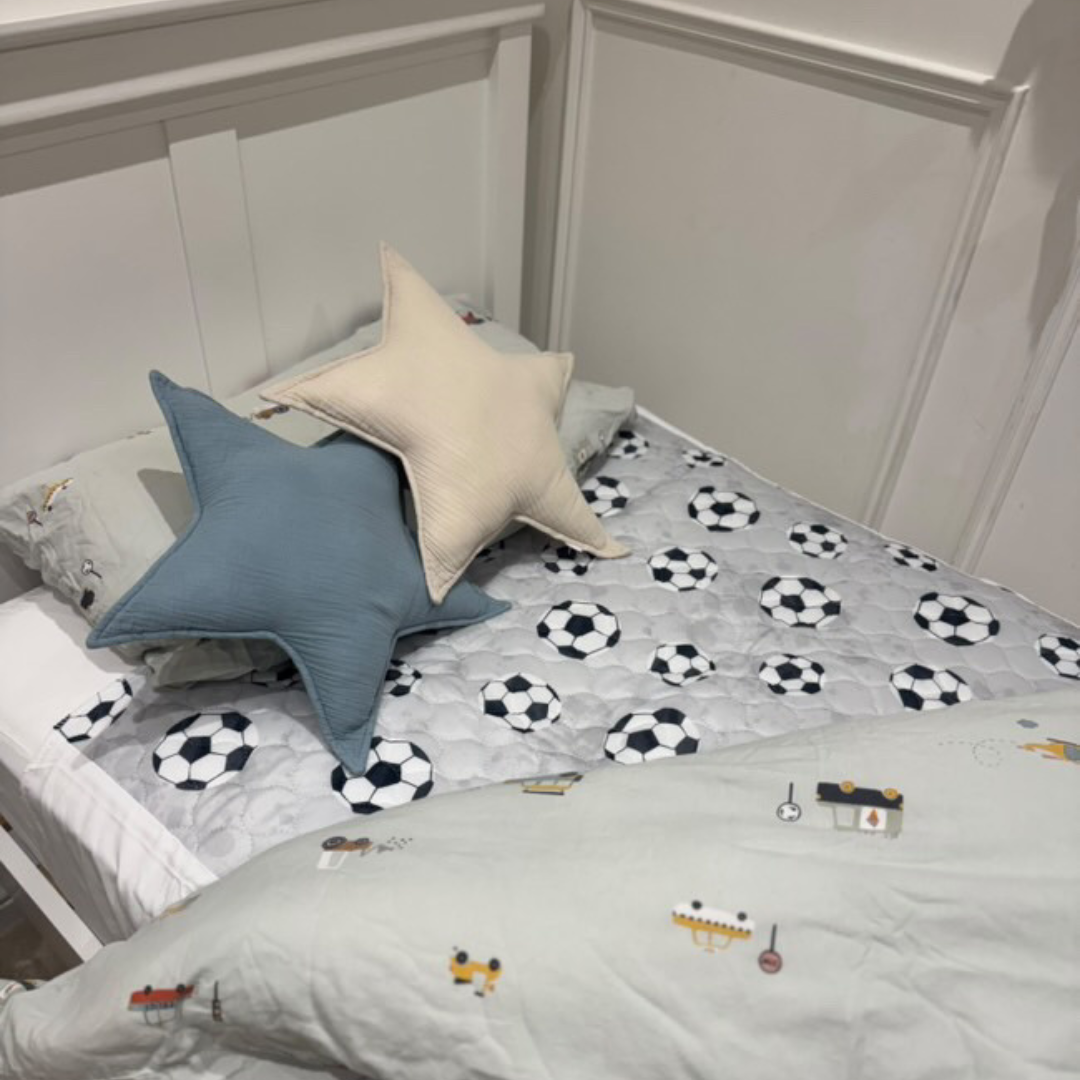As the summer holidays come to an end and back to school approaches, this brings with it new routines and excitement but also challenges. Settling into a new routine can be a very emotionally stressful time. This may lead to bedwetting getting worse or even returning, even if your child has been dry for months or years.
You’re not alone! 30% of 4 year olds are not dry at night and 15% of 5 year olds. Meaning in a Reception class of 30, you’re probably going to have at least 10 children who are not dry at night, this is not uncommon!
There are many reasons why your child’s bedwetting may have changed but understanding this can help you support them and your family through this transition.
Research Findings
A study of 1,000 parents of children aged 4 to 7 found that nearly half (49%) of children who experience bedwetting tended to have more accidents during the first week back at school. 68% of the parents surveyed, acknowledged that starting school impacted their child’s bedwetting and nighttime routine. While 73% of parents recognised the impact of bedwetting on a child’s self-esteem, 18% admitted lacking the confidence to manage the issue.
There are many reasons a child may wet the bed, however, the start of school appears particularly challenging. The research highlighted children’s worries about being separated from parents or carers (64%), following teacher instructions (55%), and spending time with unfamiliar children (60%), with additional factors such as tiredness (33%) and peer relationships (19%) also contributing to bedwetting during this period.

What Other Parents Are Saying
We recently shared a “True or False” post on our Instagram: “Kids should be out of pull-ups at night before starting school.” The response from our community was phenomenal, showing just how common nighttime bedwetting is, even as children start school.
Here are some of the real comments we received from parents:
-
“Mine is nearly 6 and still wet at night. I have tried everything!”
-
“My 11-year-old is only just dry after a referral to the bladder and bowel.”
-
“This is helpful because I get pressured that he needs to stop bedwetting at night when he starts school soon.”
-
“My daughter was dry at night until she started school, then the nighttime wetting started and hasn’t stopped!”
-
“My daughter is 6 in September and wets her nappy every night. It’s also very, very full! My 8-year old suddenly stopped one night and never looked back.”
-
“My son was 4 on the 21st June and he is not dry at night and has to wear a nappy to poo. I started shouting at him for not going on the toilet, then he stopped pooping altogether. It’s not just a nightmare.”
These stories show that you are not alone if your child is still in pull-ups at night or has started bedwetting again around the time they start school. Each child’s body and bladder develop at their own pace, and nighttime dryness cannot be rushed or forced.
Major Bedwetting Triggers
Bedwetting also known as nocturnal enuresis can have many different causes, but certain factors often play a larger role during the back to school transition. Understanding these can help you support your child and reduce feelings of guilt or frustration if accidents happen.
Hormone Changes
Vasopressin is a hormone that helps the body produce less urine at night. As children grow, their vasopressin levels typically rise overnight, allowing them to stay dry. However, changes in routine, stress, or excitement around going back to school can affect the production or effectiveness of vasopressin.
During times of stress, such as starting a new school year, your child’s body may not produce enough vasopressin at night, leading to increased urine production. This can result in bedwetting, even if your child has previously been dry at night.
Anxiety and Stress
Even if your child says they are excited to return to school, they might still feel anxious on the inside. Worries about making friends, dealing with new teachers or keeping up with schoolwork can all increase stress levels.
Children often cannot express these feelings clearly, but stress can impact how deeply they sleep and how well they respond to their bladder signals at night. A child who sleeps very deeply may not wake up when their bladder is full, leading to nighttime accidents. Supporting your child’s emotional well-being and providing reassurance can help reduce stress-related bedwetting.
Avoiding School Toilets
Starting or returning to school often disrupts toileting habits, which can impact bladder control at night. Some children may avoid using school toilets because they feel uncomfortable in unfamiliar surroundings, are worried about privacy, fear of missing out on activities, or feel nervous about asking a teacher to go.
This avoidance can lead to holding urine or having a bowel movement when they feel the urge. Trying to "hold it" until they get home can lead to daytime accidents or constipation. Holding urine can affect the bladder’s ability to empty fully, leading to incomplete voiding patterns that disrupt healthy bladder function. Additionally, constipation can place further pressure on the bladder, reducing its capacity and triggering bedwetting at night.
If your child is avoiding using the school toilets, it can help to talk with their teacher or the school nurse to encourage a consistent toileting routine during the day, supporting both daytime and nighttime dryness. Also, ensuring your child drinks enough fluids, and supporting a fiber-rich diet can help maintain regular bowel movements.
Urinary Tract Infections (UTIs)
While there are many non-medical reasons for bedwetting, it’s also important to consider that sometimes a urinary tract infection (UTI) can cause sudden bedwetting, especially if your child has previously been dry at night. UTIs can lead to increased urgency, frequency, or accidents during the day and night. If your child suddenly starts wetting the bed again, or if you notice other symptoms such as pain when passing urine, fever, or changes in their urine such as the smell or colour, it is worth speaking with your GP to rule out a UTI.
Practical Steps You Can Take
-
Speak to your child calmly about what is happening. Let them know it’s common and nothing to feel ashamed about. Possibly read them some of our real parent comments and stories.
-
Encourage them to use the bathroom before bed and limit drinks close to bedtime, while ensuring they stay hydrated during the day. Avoiding drinks with blackcurrant or caffeine can also help as these can irritate the bladder.
-
Consider using a waterproof bed protector to reduce stress for your child at night and help you with the washing.
-
Maintain a consistent bedtime routine to help your child feel secure. You could potentially use a nightlight to help them feel calm and safe.
-
Talk to your school nurse if your child is anxious about wetting the bed before a school trip. They are experienced in supporting children with bedwetting discreetly, ensuring your child can join in with activities without fear.
-
Speak to your GP if you notice frequent daytime accidents, pain, or if bedwetting persists and is causing significant distress for your child or family. In the UK, NICE guidelines recommend that children over five can visit a GP for support with bedwetting.
If your GP is unhelpful, there are other routes to support. We have compiled a list of trusted experts and organisations, including private incontinence consultants and the ERIC charity, here.
Overall, back to school can be exciting but also challenging and bedwetting during this transition is more common than many parents realise. Whether your child has been dry and starts wetting again, or they are still in pull-ups at night as they begin school, it does not mean you are doing anything wrong, or that your child is falling behind. Their body, hormones, and emotions are all adjusting to a big change, and it takes time.
Remember, bedwetting is not your child’s fault, and with reassurance, a calm approach, and practical support you can help your child feel confident and included as they step into this new chapter.

